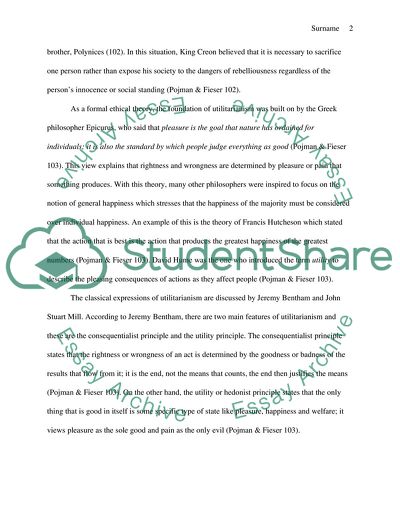Cite this document
(Uncovering the Principles of Morality through Utilitarianism Essay Example | Topics and Well Written Essays - 1250 words, n.d.)
Uncovering the Principles of Morality through Utilitarianism Essay Example | Topics and Well Written Essays - 1250 words. https://studentshare.org/philosophy/1760926-see-suggested-paper-topics-and-choose
Uncovering the Principles of Morality through Utilitarianism Essay Example | Topics and Well Written Essays - 1250 words. https://studentshare.org/philosophy/1760926-see-suggested-paper-topics-and-choose
(Uncovering the Principles of Morality through Utilitarianism Essay Example | Topics and Well Written Essays - 1250 Words)
Uncovering the Principles of Morality through Utilitarianism Essay Example | Topics and Well Written Essays - 1250 Words. https://studentshare.org/philosophy/1760926-see-suggested-paper-topics-and-choose.
Uncovering the Principles of Morality through Utilitarianism Essay Example | Topics and Well Written Essays - 1250 Words. https://studentshare.org/philosophy/1760926-see-suggested-paper-topics-and-choose.
“Uncovering the Principles of Morality through Utilitarianism Essay Example | Topics and Well Written Essays - 1250 Words”. https://studentshare.org/philosophy/1760926-see-suggested-paper-topics-and-choose.


